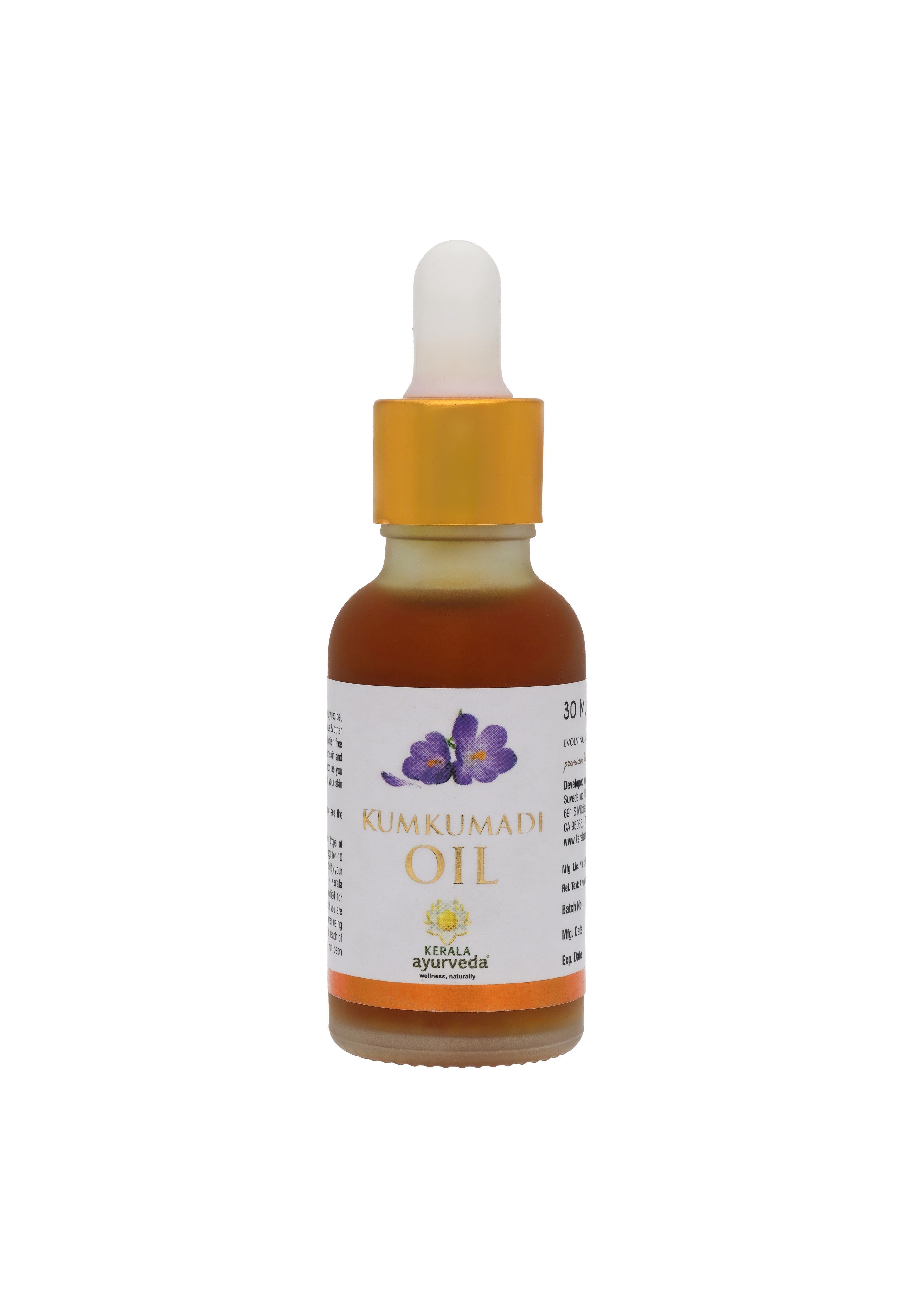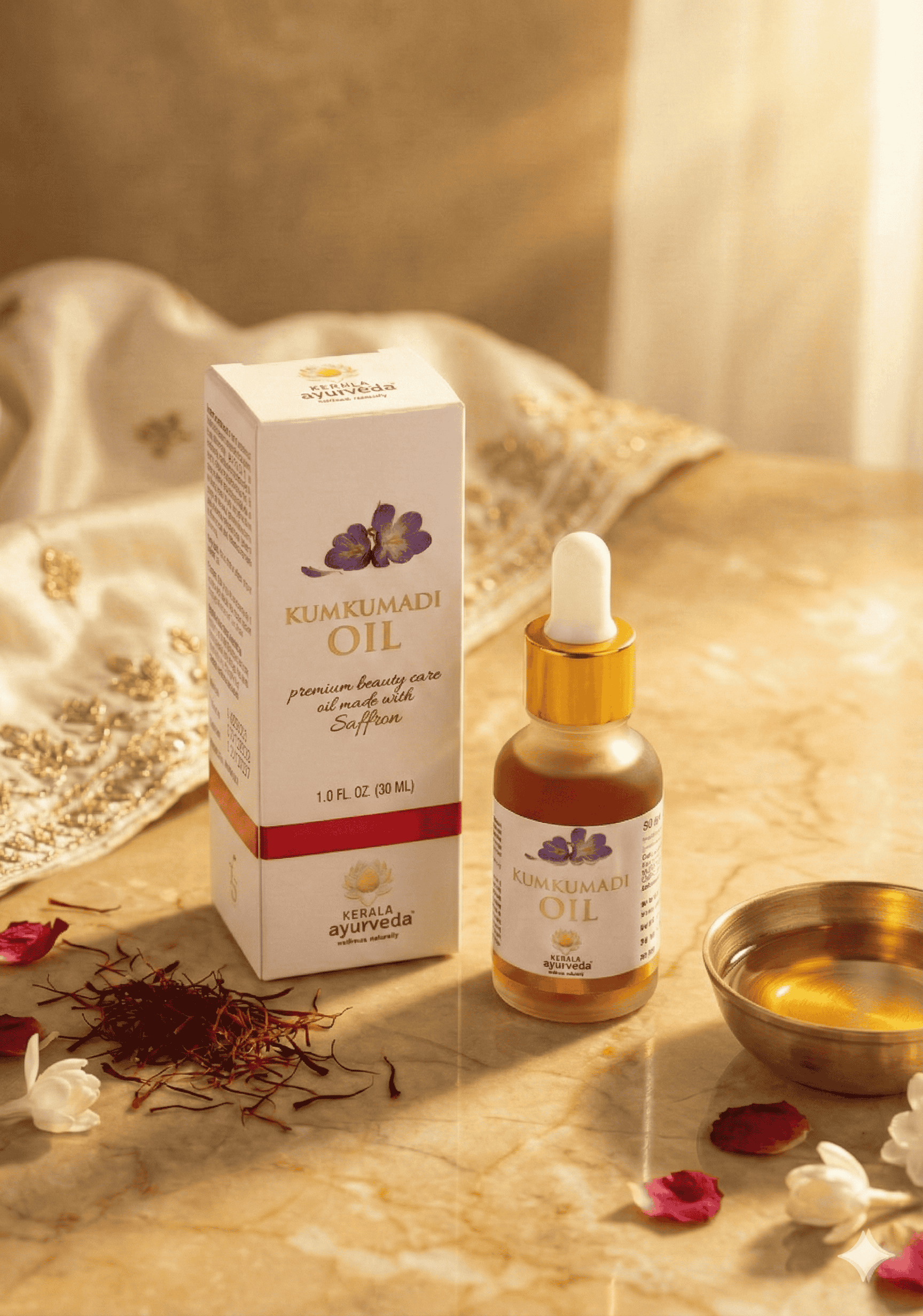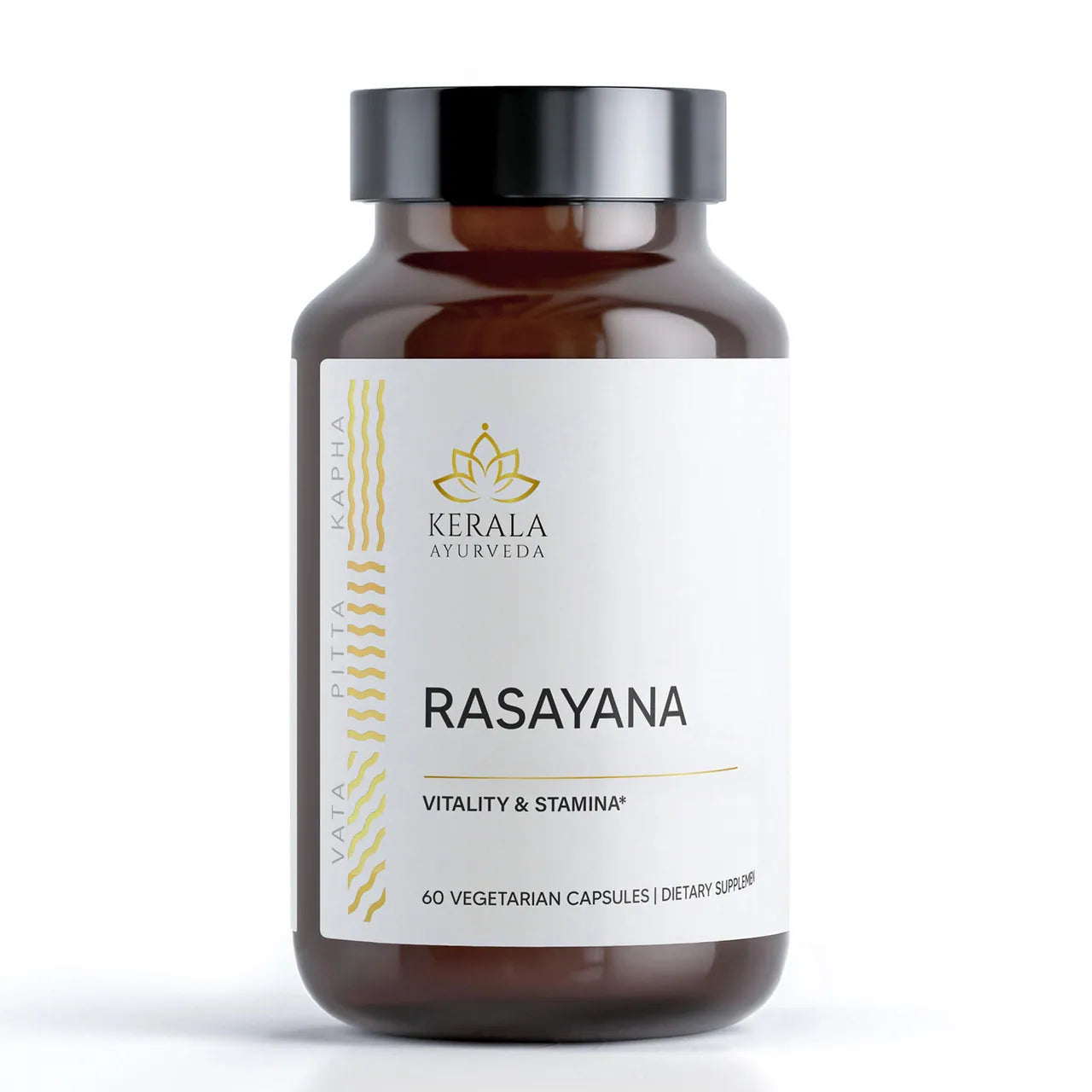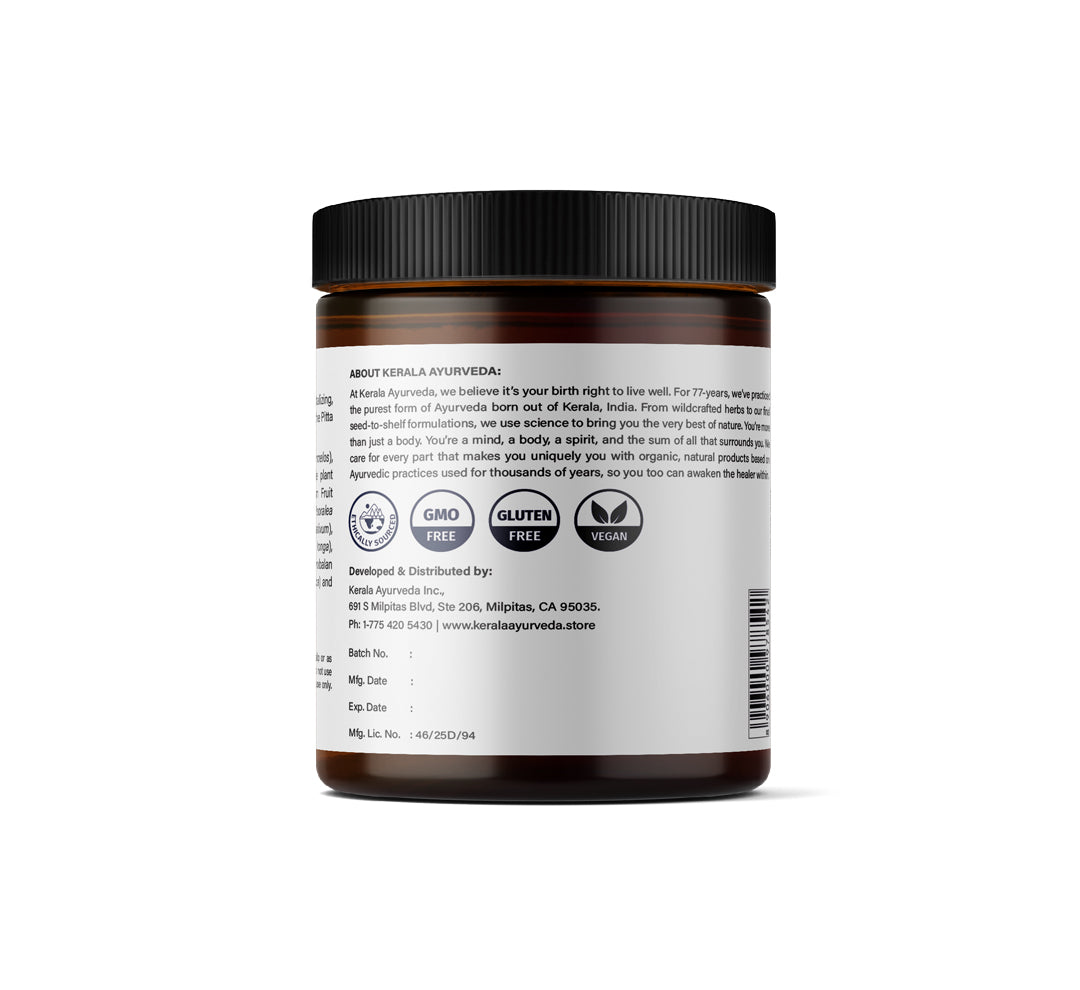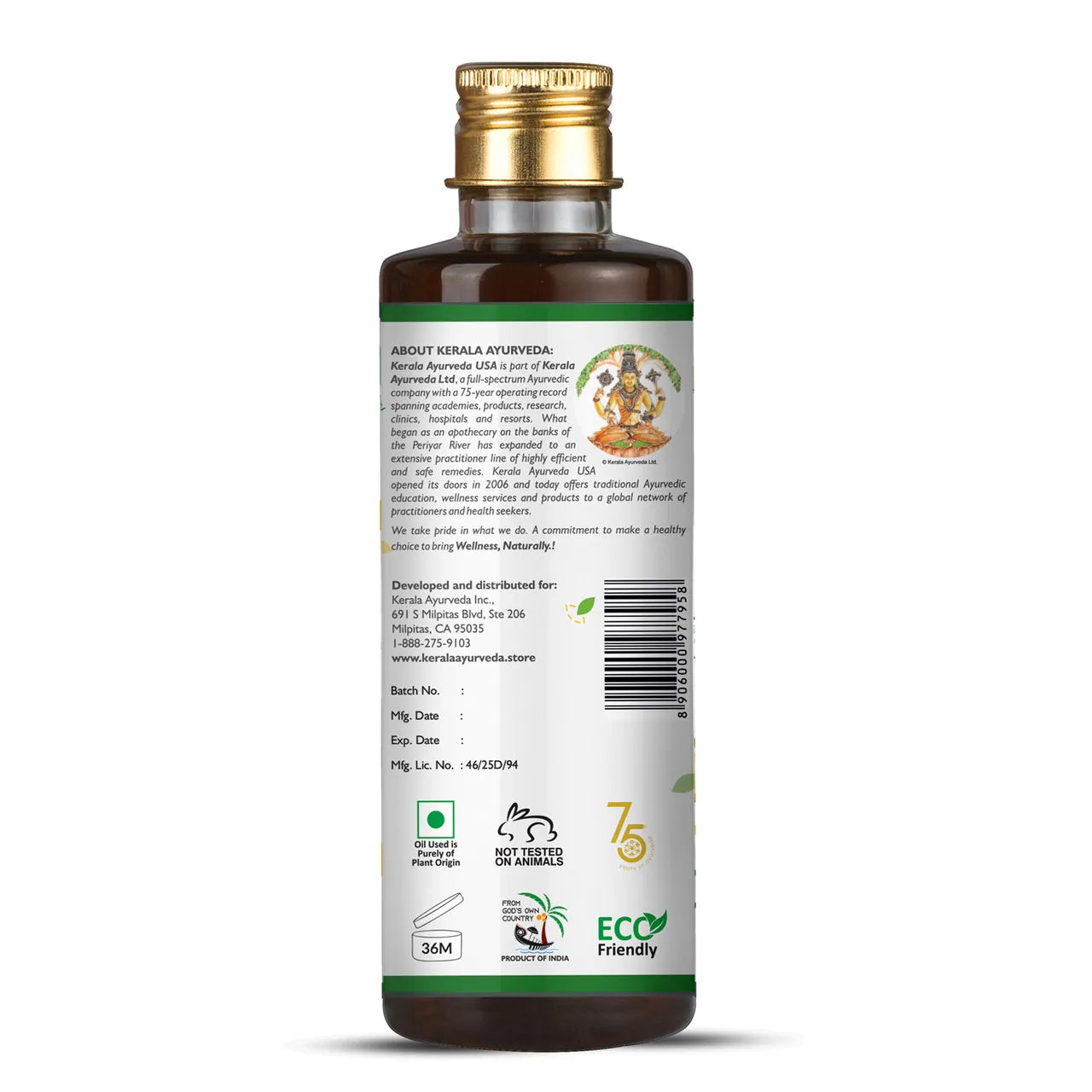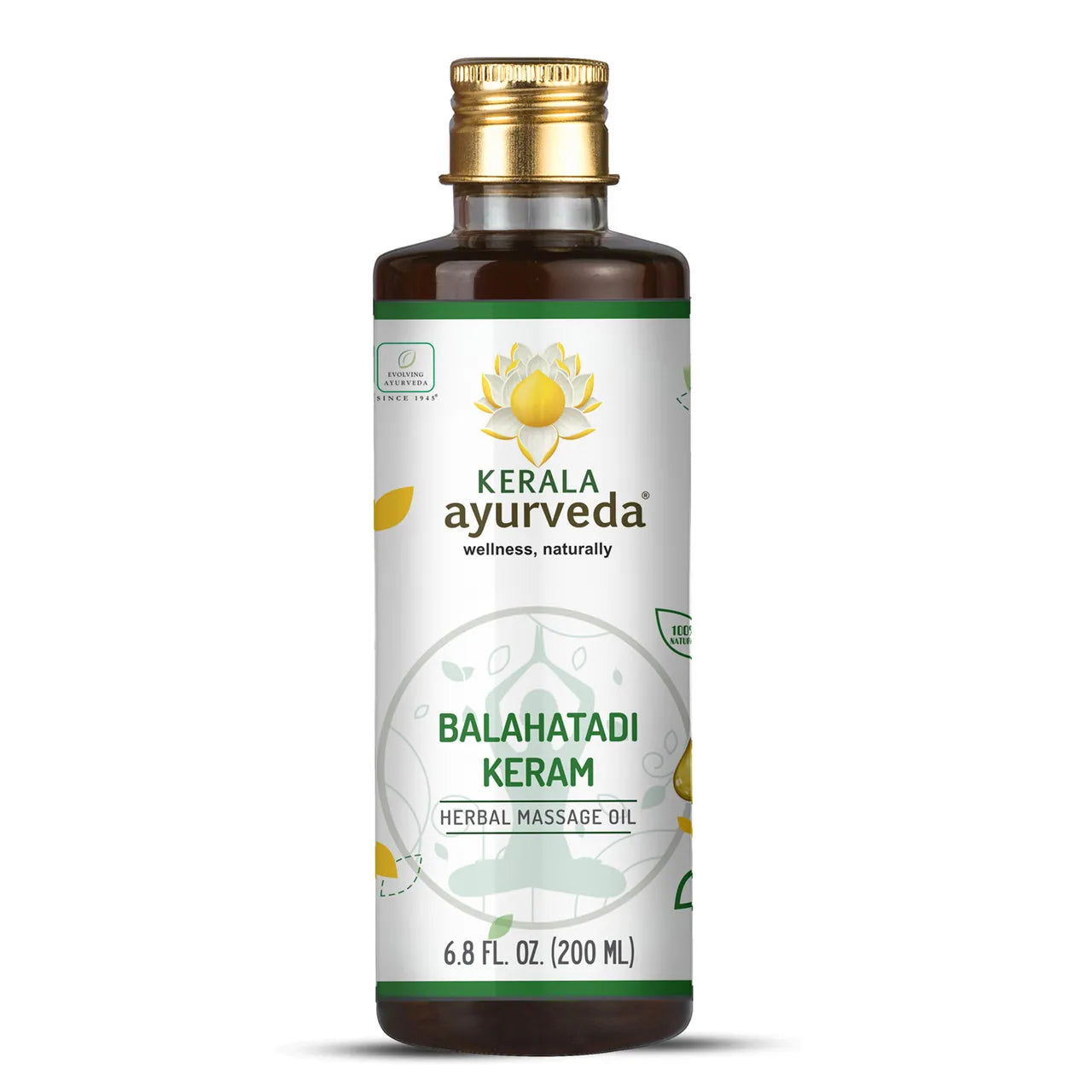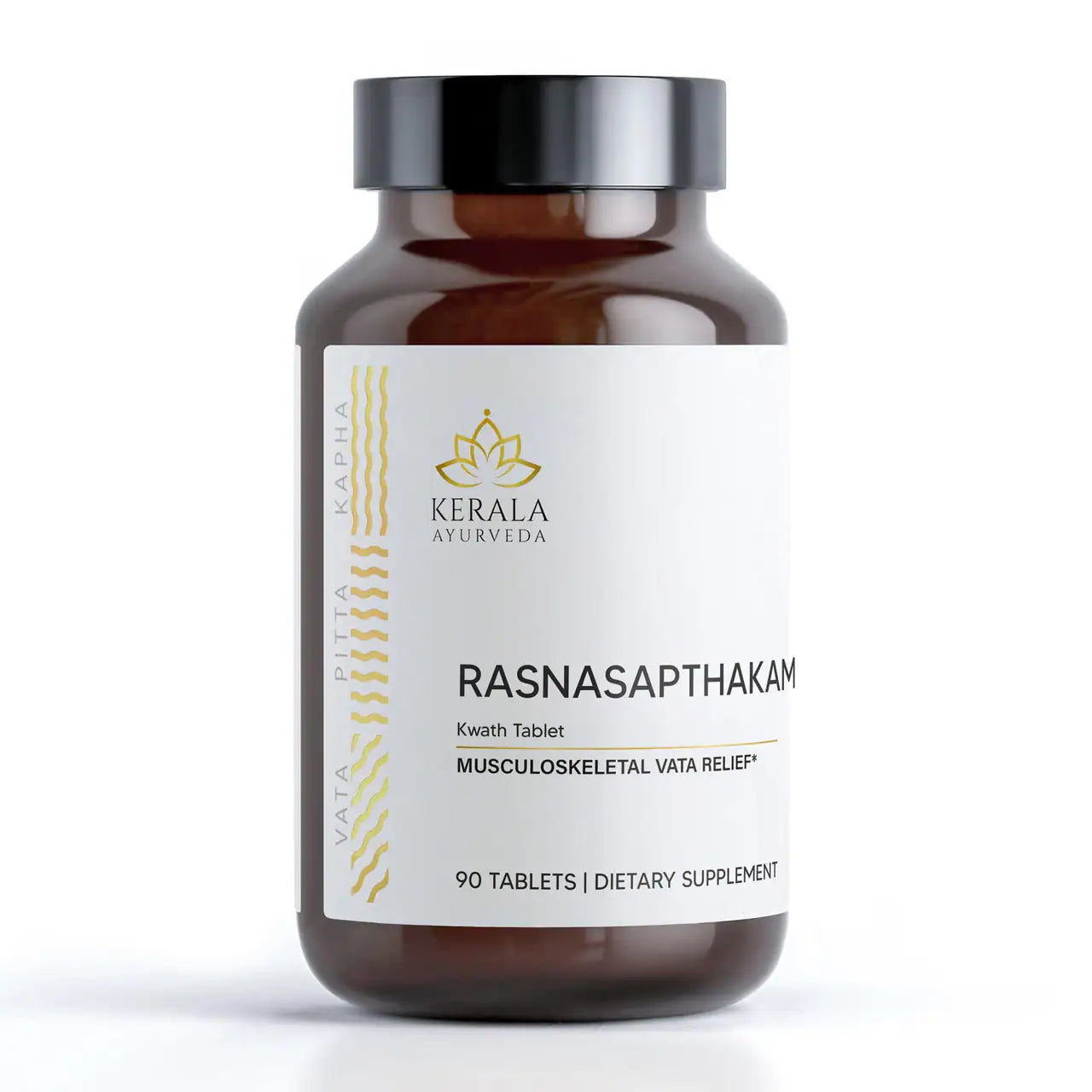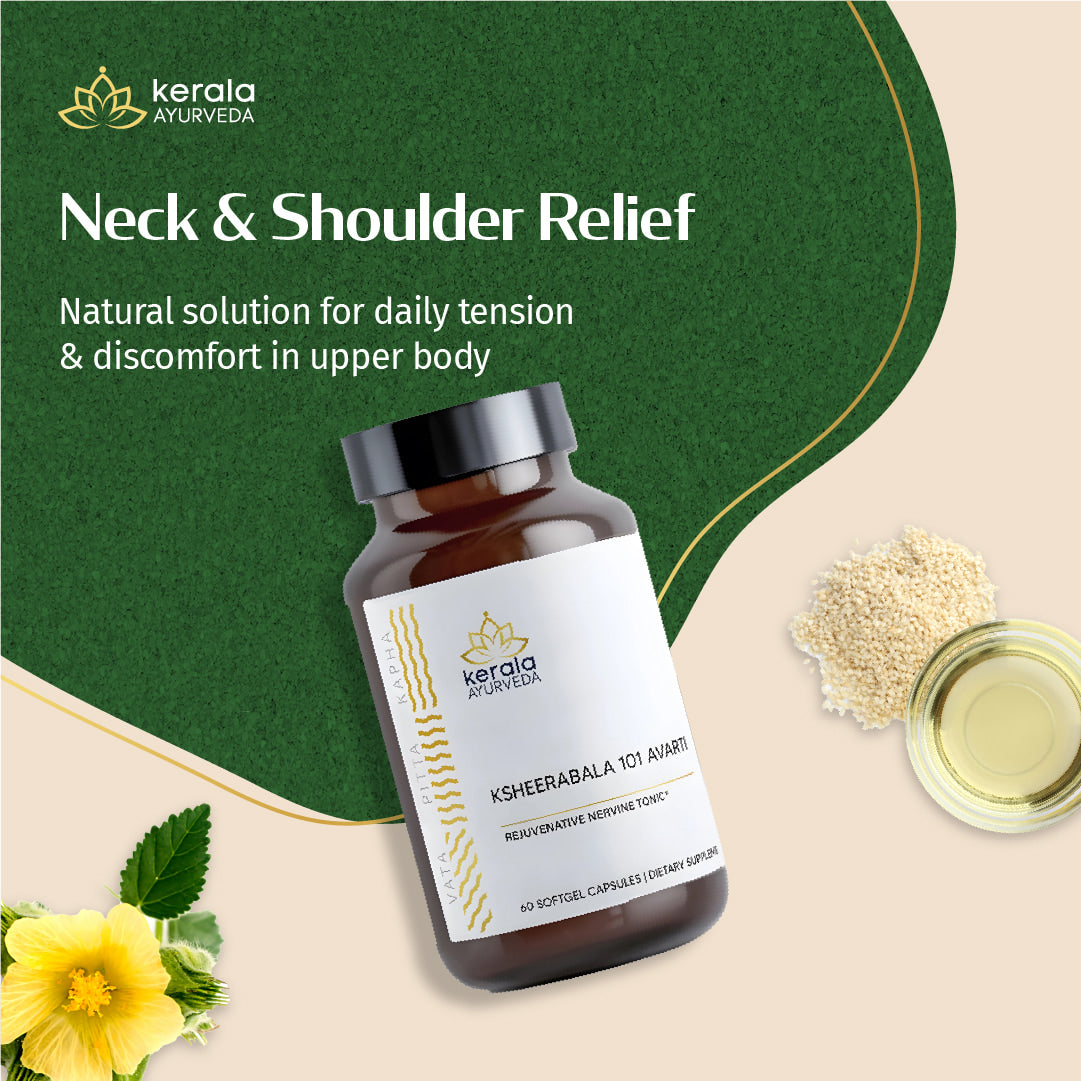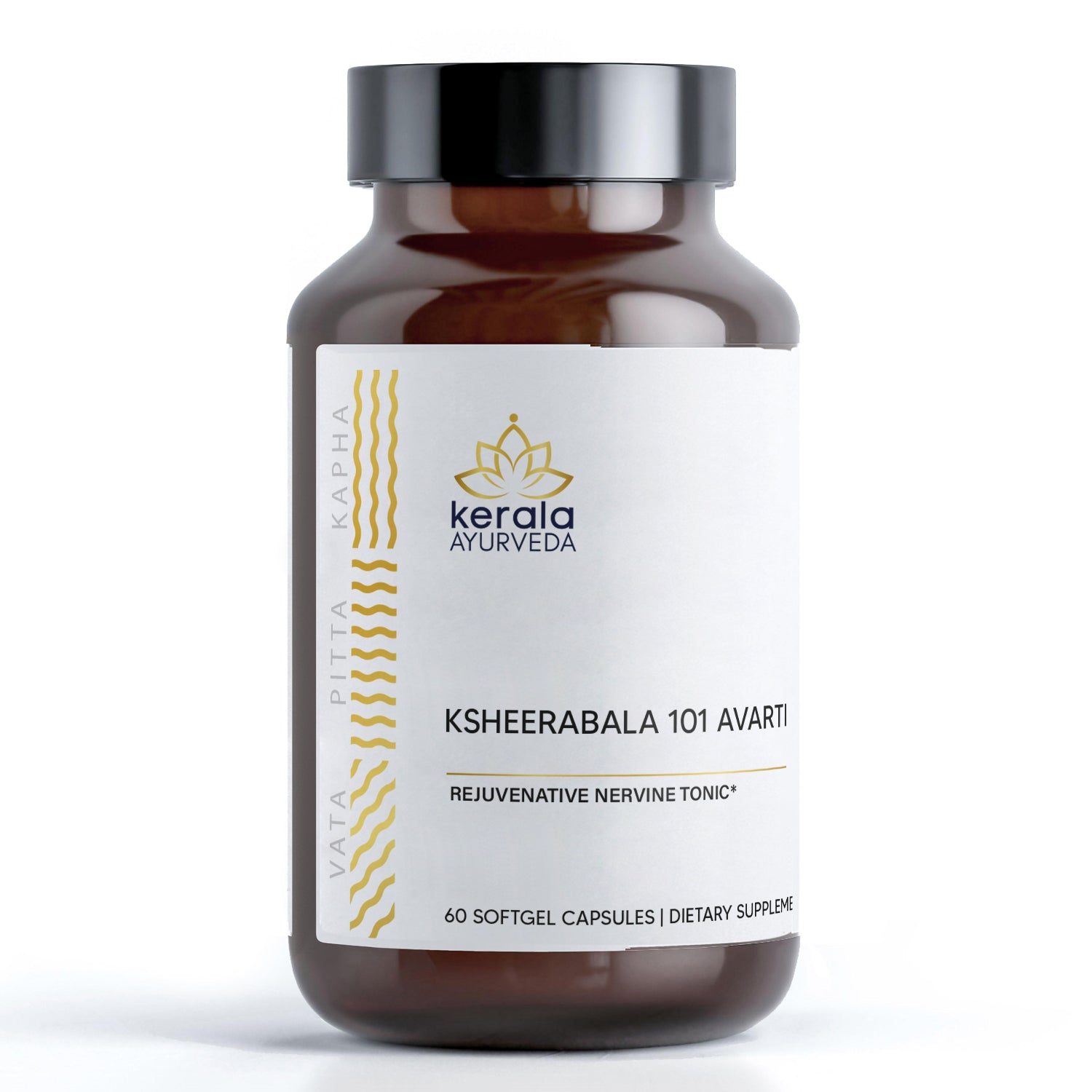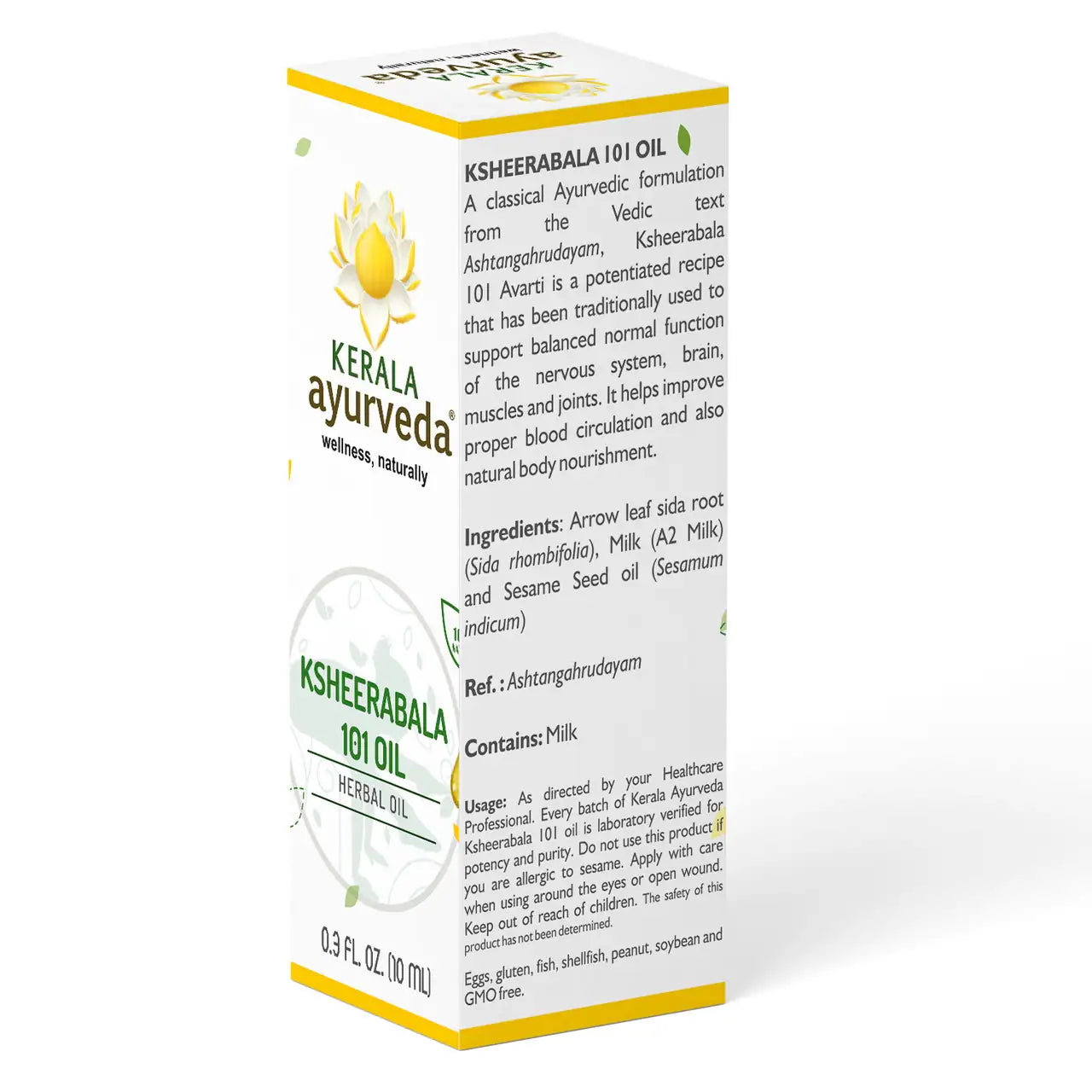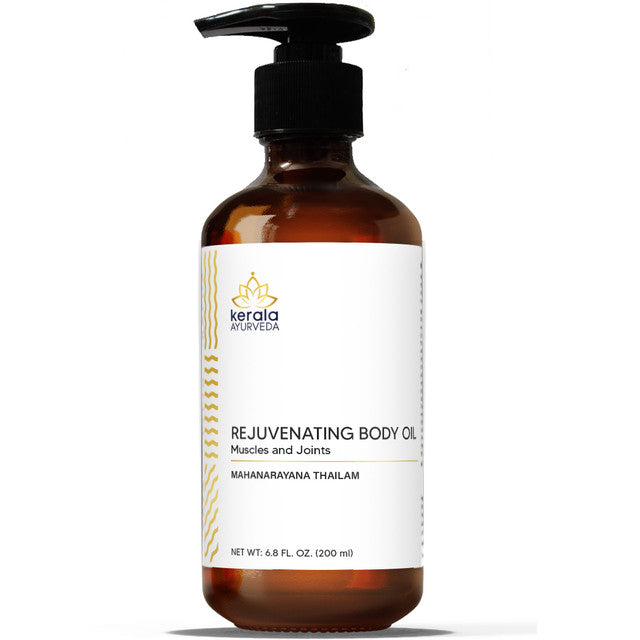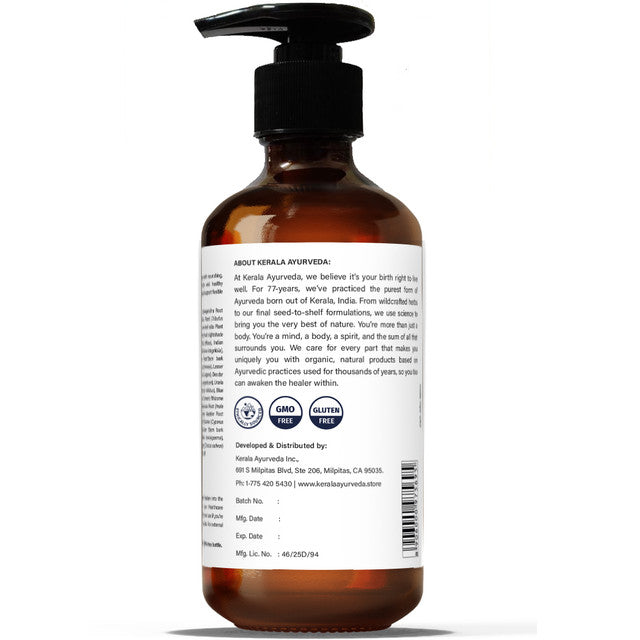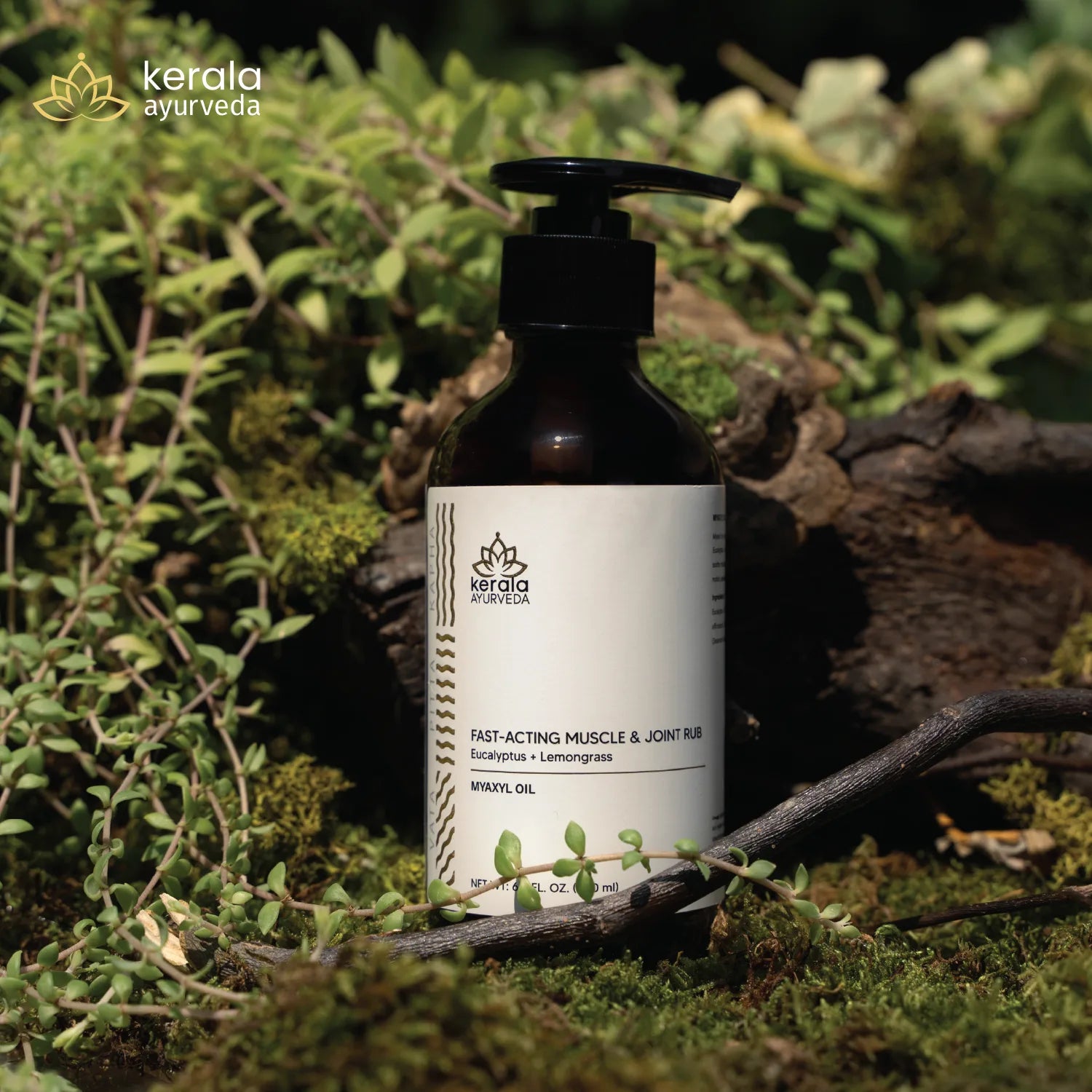Highlights
Just as winter begins to slow our pace, the busy holidays arrive, and end-of-year work piles up. Stress increases, sleep decreases, and it's no wonder so many of us feel like our bodies are at war with winter! Instead of leaning into the natural ebb and flow of the season, we force our bodies and brains to speed up.
Ayurveda acknowledges that our bodies are cyclical with the seasons, not linear machines. And it offers us a way to understand our bodies and how to balance them in the winter season.

The Shift From Summer to SAD
Our bodies sync with the seasons' natural sights, sounds, and sensations when we spend time outside in the warmer months. We move our bodies more; have better access to fresh, local, and raw foods; and are able to absorb more sunlight — which means we have more vitamin D in our systems. In short, it's easier for everyone to be happy!
As cold temperatures set in, syncing up with nature becomes more challenging. The green of summer fades and snow begins to fall. We shift into hibernation mode and spend most of our time indoors. Our serotonin and general energy levels drop as sunlight hours shrink, and our exposure to fresh air diminishes. Life moves on, and slowing down with the season can feel impossible.
Serotonin and Seasonal Affective Disorder
The drop in serotonin we experience in winter is one of the significant hormonal shifts associated with seasonal affective disorder (SAD). The hormone serotonin helps regulate your circadian rhythms, maintains mental clarity and mood, and can even affect your relationships and libido.
People who experience seasonal affective disorder (or SAD) are often otherwise healthy individuals who experience feel depressed, sluggish, and hopeless in the winter months. They may also find that their appetite and sleep habits change or that they lose interest in their usual activities and struggle to focus.
Seasonal affective disorder can add to the existing challenge of being indoors, being still, experiencing stressful holiday celebrations, and for many people feeling the pangs of grief for loved ones who are no longer with them for the holidays.
According to medlineplus.gov, "Seasonal affective disorder occurs in 0.5 to 3 percent of individuals in the general population; it affects 10 to 20 percent of people with major depressive disorder and about 25 percent of people with bipolar disorder." SAD can even occur one winter and then not the next.
While it's important to talk to your doctor and mental health provider about your experience with seasonal affective disorder, you don't need an official SAD diagnosis to get started with supporting your body today. There are simple ways to nourish your body with Ayurveda that will make wintertime more gentle on the body, mind, and spirit.
Seasonal Affective Disorder and Ayurveda
In Ayurveda, we create routines and make lifestyle changes during seasonal shifts called Ritucharya. Ritucharya helps maintain hormonal balance and overall health. As summer shifts into fall and winter, it can also help support your body and diminish the symptoms of SAD.
The fall and early winter is a cold, dry season, associated with Vata Dosha in Ayurveda. Therefore, efforts to balance the body and follow nature's rhythms during this season focus on warmth and nourishment.
Ending Your Body's War With Winter
All the time we spend indoors during the winter can be isolating and depressing or conversely recharging and restorative. Turning your focus inward, reflecting, and listening to your body are essential if you want a winter that is more of the latter. There are also very practical ways to incorporate Ritucharya into your life to get the most out of your winter season.
DIM YOUR LIGHTS
The pituitary gland is responsible for the secretion of stress hormones and plays a vital role in your sleep cycles. Blue light from computers and even artificial light keeps the body alert and stimulates the pituitary gland. It's best to stimulate the pituitary gland as little as possible during dark winter evenings.
Since daylight is limited in the winter, using light as close to nature's light as possible helps to keep the body in a relaxed, restful state. Wood fires, some electric fires, candles, and amber-colored light bulbs will all produce light closer to natural sunset lighting. Remember to add a Vitamin D supplement to your diet, too, since your body will produce less of it while you're out of the sunlight!
PURIFY YOUR AIR
Indoor HEPA air purifiers, humidifiers, and opening windows anytime the weather allows are all fantastic means of keeping the air in your home clean and moist. Stagnant, dry air can dehydrate the body, so be sure to drink plenty of water as well.
Many people love to have holiday candles burning during the holidays. And while candlelight is very appropriate for this Vata season, the ingredients in your candles could harm your body. Look for natural waxes like beeswax candles in holiday-inspired shapes and steer away from petroleum-based wax and artificially scented candles.
MOVE YOUR BODY
Stretching, yoga, and slower movements can help warm the body and move stagnant lymph. Try incorporating these relaxing movement practices into your evening routine to wind down from the day and prepare your body for rest. It can be helpful to move your bedtime up by an hour or two in the winter since our bodies naturally want more sleep.
WARM YOUR FOODS
While eating plenty of fresh fruits and vegetables is essential, raw foods can be difficult to digest and take additional heat out of the body in the winter. For this reason, warm and cooked foods are essential during the winter.
Some of the best foods for winter include simple soups, stews, hot cereals, herbal teas, and hot milks. Cooking with ghee is another simple way to calm your nervous system during the winter season.
GIVE YOURSELF A BOOST
Sometimes, creating ideal winter conditions for yourself isn't possible. And other times, you can create ideal conditions and still need extra help. Either way, you're not alone!
Adding adaptogenic herbs to your diet is one of the most potent ways to bring more clarity to your mind and stability to your mood while also soothing your stressed nervous system. Adaptogens are herbs that live up to their name — they support your body in adapting to changing seasons and external stressors.
By interacting with the hypothalamic-pituitary-adrenal (HPA) axis, these herbs raise or lower hormonal levels as needed, contributing to homeostasis in the body.
We love to add Kalyanaka Ghritham infused clarified butter into our morning and evening routines. Full of adaptogenic herbs, this nutraceutical balances the Vata Dosha and supports gut health.
Brahmi Pearls that contain the adaptogenic herb Bacopa are also great to keep on hand to revitalize your cognitive function and rejuvenate yourself from the mental fatigue of stress.
Learning to Live With and Love The Winter Season
This winter, embrace hibernation, restoration, and deep reflection. Choose a few ways to honor the Ayurvedic concept of Ritucharya, replenish yourself, and get ready to adapt to the new year.
Extra Help For When You're Feeling Hopeless
If you find that your SAD intensifies into suicidal ideation or you feel that you need additional resources, please reach out to a reputable hotline for support:
Call or Text 988 for the Suicide and Crisis Hotline
National Suicide Prevention Lifeline: 1-800-273-8255
Samaritans: 1-877-870-4673
National Hopeline Network: 1-800-442-4673
Veterans Crisis Line: 1-800-273-8255




